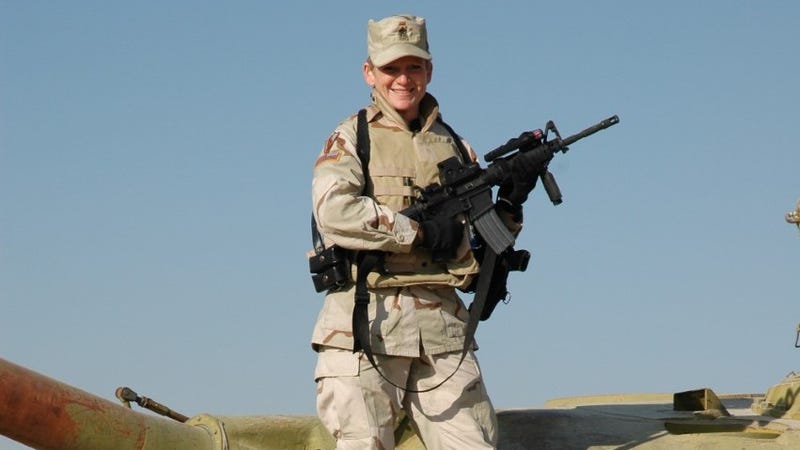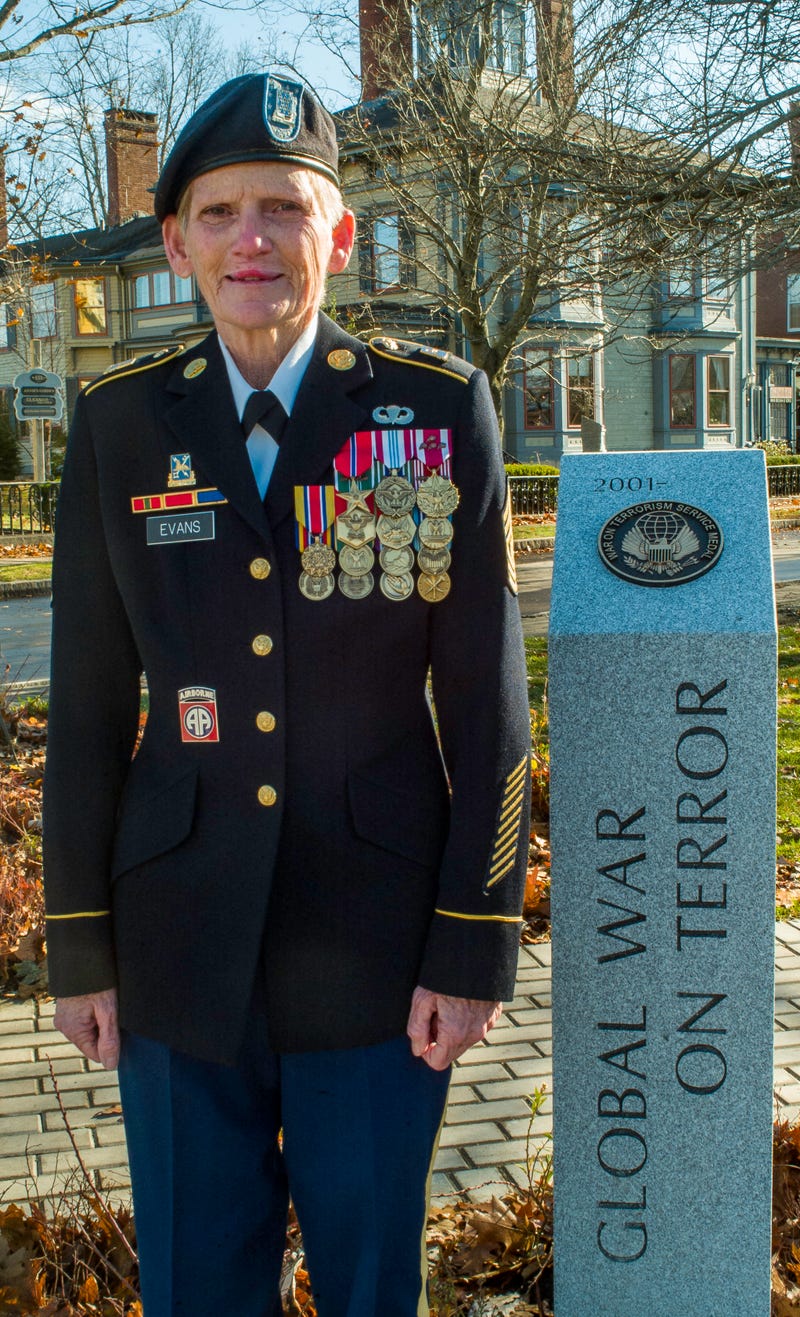
Army Command Sgt. Major Gretchan Evans is not allowing the injuries she sustained as a result of being severely injured in Afghanistan back in 2006 to define the rest of her life.
“I’m not glad I got blown up, because that was not a good day,” Evans told AARP’s Reporting for Duty. “But, it made me a better person. It made me more empathetic, it made me more sympathetic, it broadened my own horizons.”
Evans grew up in a “very patriotic family” in Abilene, Texas. Her father served in World War II.
“We’re the kind of family, even when the national anthem was played on TV, we stood up,” she said.
That led the 5 feet tall Evans to enlist in the U.S. Army at 19. She initially planned to do a single 4-year hitch and then return to civilian life, where she would pursue her education.
“That was the plan,” she said with a laugh.
Following basic training, Evans was asked to go to counterintelligence and language school.
“That was really a great niche for me, because of my stature, being small, at the time I looked young nobody would have expected me of being a counterintelligence agent,” she said.
Her small size helped Evans to go unnoticed as a spy in counterterrorism operations throughout Italy, Central America and the Middle East. She also undertook leadership roles in multiple combat engagements and was deployed in many capacities, including as a paratrooper.
By the end of her career, Evans had worked her way up to command sergeant major, the highest rank an enlisted soldier in the U.S Army can achieve. During her final deployment in 2006, she oversaw security and personnel for all U.S. military bases in Afghanistan, which included 30,000 ground troops.

“I had landed on this base right on the border of Pakistan and Afghanistan and I hadn’t been on the ground maybe a couple of minutes and all of a sudden we start taking mortar fire, it came in like rain,” she said.
Evans began yelling at her troops to get in the bunkers.
“Then, before I could get myself into the bunkers a round landed to my right,” she continued. “I remember hearing that round hit and then I remember thinking you’ve got exactly 3 seconds before that thing detonates.”
When the round detonated, Evans was flung through the air, leaving her unconscious. When she woke up, she found herself in a hospital in Germany.
Evans said a doctor had written “you are deaf” on a dry-erase board in her hospital room.
“I knew at that very moment my career was over,” she said.
As she made her unplanned transition back to civilian life, Evans faced challenges in finding a job as she struggled with post-traumatic stress disorder. Despite those injuries, Evans considers herself someone with mixed abilities rather than disabled. She taught herself to read lips after losing her hearing.
“I spent almost my entire adult life in the military, and it is a very different lifestyle than most people encounter. Learning to navigate the civilian lifestyle took some real effort on my part,” she told AARP. “Again, there were not many examples to follow for transitioning to civilian life.”
Evans says the numerous veterans service organizations helped her assimilate back to the civilian world, such as the Wounded Warrior Project, No Barriers and America’s VetDogs, from which she received her own service dog.
Evans, 62, works locally with organizations like Vet2Vet Maine and the American Legion and nationally through programs offered through the Wounded Warrior Project.
She also founded and formed Team Unbroken and competed in the World’s Toughest Race: Eco-Challenge Fiji, a long multiday expedition that was filmed and is streaming on Amazon Prime Video.
“We continue to race. But more importantly, we speak nationwide about our personal and team story. Everyone on the team has a life-altering injury, illness or trauma with which they live,” Evans said. “In the telling of our stories and demonstrating through competition, our hope is to inspire people with wounds visible or invisible to not let their injuries, illnesses or traumas define who they are or what they can accomplish.”
Team Unbroken has competed in more than 10 races worldwide to raise awareness for athletes with mixed abilities since 2020.
“You are never too old to try something new. I think the beauty of aging is that you have wisdom and know that the world can offer adventure, knowledge and happiness,” said Evans. “Find what makes you happy — and do that while staying open to attempting new things to see if they increase your joy of living. Live well and incorporate a way to give back to others.”
Reach Julia LeDoux at Julia@connectingvets.com.



